sep
27
2023
Finch in a pinch: Effect of human activity on Darwin’s finches in the Galápagos Islands
Sarah Knutie, PhD, Associate Professor, Department of Ecology and Evolutionary Biology, Institute for Systems Genomics, University of Connecticut
The Biology Department at Fairfield University is dedicated to delivering an excellent, comprehensive education to our students. Throughout their course of study, students are given innovative classroom instruction along with hands-on experience in labs, providing them with a deep appreciation and understanding of the diversity of living things, their adaptations to the environment, and their evolutionary and ecological relationships.
The Biology Department faculty is composed of a vibrant group of scholars and researchers committed to education. Undergraduates are given the opportunity to attend seminars on a wide range of topics, conduct original independent and team research, co-author publications, and pursue internships both on-and-off campus. It’s not uncommon to see our students conducting bird surveys at the Audubon Center or working with the staff of Boston’s Children’s Hospital.
By studying biology at a multitude of levels, you will be equipped to understand the challenges faced by all living things. These fundamental understandings give you the tools to grasp and address the challenges which arise in graduate, medical, dental, or allied health schools, and in careers in the life and medical sciences.
STEM at Fairfield University

P: (203) 254-4100
F: (203) 254-4199
admis@fairfield.edu
The Biology Department has set forth learning goals for all students majoring in biology. This includes specific outcomes related to both biology content and skill sets.
Biology Major (67–71 Credits)
| BIOL 1171 & 1172 | General Biology I and II | 8 |
| CHEM 1171 & 1172 | General Chemistry I and II | 8 |
| MATH 1121 OR MATH 1171 |
Applied Calculus I OR Calculus I |
3 – 4 |
| MATH 2271 OR MATH 1122 OR MATH 1172 |
Statistics I |
3 – 4 |
| Core curriculum courses | 12 | |
| Total | 34 – 36 | |
| BIOL 1173 | General Biology III | 4 |
| CHEM 2271 & 2272 | Organic Chemistry I and II | 8 |
| Biology block elective (see below section) | 3 – 4 | |
| Core curriculum courses | 12 | |
| Total | 16 – 17 | |
| PHYS 1145 & 1146 | General Physics for Life Science I & II | 8 |
| Biology block elective (see below section) | 6 – 8 | |
| Biology electives*** | 6 – 8 | |
| General electives | 6 – 8 | |
| Core curriculum courses | 12 | |
| Total | 30 – 36 | |
*The sequence for biology block electives and general electives shown here are only suggestions. You may arrange them differently. Various upper-level courses may be double-counted toward the departmental concentrations in evolution, ecology and biodiversity, health and human biology, marine science or molecular biology.
| BIOL 4999 | Capstone Seminar | 3 |
| Biology electives*** | 3 – 4 | |
| General electives | 12 – 16 | |
| Core curriculum courses | 12 | |
| Total | 30 – 35 | |
*The sequence for biology block electives and general electives shown here are only suggestions. You may arrange them differently. Various upper-level courses may be double-counted toward the departmental concentrations in evolution, ecology and biodiversity, health and human biology, marine science or molecular biology.
Biology Minor (18–20 Credits)
For an 18-20-credit minor in biology, students complete the following:
Double counting is not allowed.
Biology Block Electives and Additional Requirements
After completion of the General Biology sequence (BIOL 1171, BIOL 1172, BIOL 1173), a minimum of six biology courses and a capstone experience are required. To ensure breadth of exposure, at least one course must be taken from each of the three blocks. The three remaining biology course electives may be any 2000- or 3000-level courses. Four of the six courses taken during the sophomore (second semester) through senior years must include a laboratory component.
The choice of block electives, advanced biology electives, and general electives inside or outside the department varies according to a student's career objective and interest. Students make their choices after consultation with appropriate department advisors. Students interested in molecular biology may, for example, take advanced courses to fulfill a concentration in molecular biology.
Students interested in graduate, medical, dental, or allied health schools may select electives that meet the requirements for admission to graduate or professional schools. Students interested in science writing or teaching in biology may choose to earn minors in English or education.
Biology Major Concentrations
Students majoring in biology can choose to pursue a concentration in five different areas:
Concentration in Evolution, Ecology, and Biodiversity
This concentration is intended for the cohort of students interested in pursuing academic and career paths in evolution, ecology, or conservation biology. Interested students should consult with Dr. Tod Osier for advisement.
Concentration in Health and Human Biology
This concentration may be of interest to pre-health students, most of whom already select this set of courses as prerequisites or highly recommended courses for post-graduate programs (i.e. medicine, dentistry, veterinary science, pharmacy, physical therapy, physician’s assistant, etc). Interested students should consult with Dr. Anita Fernandez for advisement.
Concentration in Marine Biology
This concentration provides a major focus on marine organisms — in the context of an overall appreciation and understanding of the chemical, geological, and physical environment of the ocean. Interested students should consult with Dr. Shannon Gerry for advisement.
Concentration in Molecular Biology
As part of this concentration's six required electives, students must take four courses from the molecular, cell, and developmental biology block. Interested students should consult with Dr. Shelley Phelan for advisement.
Biology Major with a Minor in Educational Studies and the Five-Year Teacher Education Program
Biology majors who elect a minor in educational studies and who have been admitted to the 5-year Integrated Bachelors-Masters Degree and Teacher Certification program should consult with Anthony DeCristofaro, education advisor, and Dr. Emily Smith or Dr. Alyson Martin, co-directors of the 5-year certificate program, to ensure that appropriate thought and reflection on their choices for upper division biology curriculum be made in assuring the best outcome for this unique 5-year program.
For detailed information regarding biology concentration requirements, please reference the University's course catalog.
The College of Arts and Sciences empowers and encourages undergraduate students from all disciplines to conduct innovative, in-depth, and collaborative research under the guidance and encouragement of faculty experts and staff. Each year, more than 300 faculty-student research projects are conducted in the areas of STEM, the humanities, arts, and social sciences, more than half of which are presented at national scholarly meetings and/or published in professional journals and manuscripts. Learn more about some of our recent biology research projects, then visit the College of Arts and Sciences undergraduate research webpage to learn more.
Undergraduate biology students Maggie Xie ’20, Isabelle Seppa ’20, Brenna McAllister ’21, and Giulia Crosio ‘20 spent summer break conducting a variety of innovative cancer cell research in Dr. Shelley Phelan’s biology lab.
Their potentially groundbreaking studies included discovering new ways to detect cancer cell aggressiveness using natural fluorescents, determining the ability to grow breast cancer cells on 3D printed polylactic acid scaffolds, and analyzing the effects of olive leaf chemical compounds on the death of leukemia cancer cells.
Biology students Katherine Biardi ’19 and Teresa Sauer ’20 teamed up with faculty mentor Jennifer Klug, PhD, to study the effects of algal blooms in Lake Lillinonah. Biardi’s research focused on an analysis of water quality data collected from 2010 to 2018, to determine long-term water quality trends at the lake. Sauer’s research focused on analyzing the effect of high river inflow on the lake’s water quality to better understand how the health and recreation potential of the Lake Lillinonah is influenced by severe precipitation events.
Their respective studies found that the lake’s temperature peaked in July and August, and that water clarity was lowest at those times as well. Analysis showed that the increases in nutrients in late summer coincide with the large algal blooms and high toxin levels that are found on Lake Lillinonah in August and September, when recreation on the lake is highest. By examining the relationship between river discharge, algae concentrations, and dissolved oxygen levels during periods when the lake’s water column was significantly mixed, they were also able to track the effect of significant precipitation events on the lake. Their results will be used by organizations in charge of the lake to anticipate changes in water quality and track yearly conditions as the predicted effects of climate change worsen.
Biology undergraduate Giulia Crosio ’20 and faculty mentor Anita Fernandez, PhD, conducted a recent study using C. elegans, a tiny nematode worm with similar genes to humans and other animals, to examine the roles of different genes and how they collaborate to promote fertility.
During their study, Crosio and Dr. Fernandez discovered that the regulation of microtubule motors (essential transporters of cargoes within cells) is important for fertility, and that mel-28, a nuclear envelope protein, plays an important role in microtubule motor function. They also found that simultaneous disruption of mel-28 and the microtubule motor dynein negatively impacts fertility in C. elegans, a finding that could be valuable for understanding regulation of intracellular trafficking in other animals, including humans.
Faculty research specializations provide opportunities for qualified students to participate in laboratory research or library investigations in their chosen interest areas under a professor's guidance. These opportunities expand and enhance the biology program's numerous possibilities for individualization.
Students intending to continue their studies in graduate school should consider participating in two or more semesters of research. All on-campus research experiences require pre-arrangement with a faculty research advisor. Off-campus research experiences require an on-campus faculty mentor and approval from the department chair or research director. Prior consultation is required to assure that the particular activity meets the requirements of the biology major curriculum. Research and internship experiences are extra courses and do not count towards the biology major degree requirements.
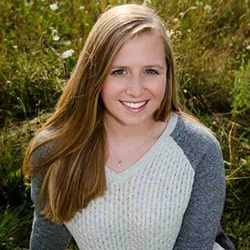
Class of '20
Undergrad Degree: BS in Molecular Biology, Minor in Italian Studies
Hometown: Northborough, MA
Extracurricular Activities: Phi Beta Kappa, Alpha Sigma Nu, Honors Program, Sigma Xi, Bellarmine Scholars Program, Club Swim, Tour Ambassador, Undergraduate Research
What were your reasons for choosing Fairfield University?
I chose Fairfield not only for its strong biology program, but also for its diverse study abroad offerings. I wanted to study abroad in Firenze and not fall behind in classes, which Fairfield allowed me to do. I also chose Fairfield for the community and the extracurriculars.
Why did you choose your major?
I have always loved science experiments and realized my passion for research in high school. Through research I am able to study an important topic like breast cancer in a new way and hopefully come up with a study able to target prevention, staging or drug development.
What were the best aspects of your experience at Fairfield?
Studying abroad was my favorite experience at Fairfield. Through the Bellarmine Scholars program, I was able to explore not only Firenze but also various cities and town throughout Italy. Another aspect I enjoyed was being a tour guide for two years because it allowed me to tell potential students about the many qualities that make Fairfield special.
What interesting projects, research opportunity, or leadership experience were you involved in at Fairfield?
In order to complete my Italian studies minor, I added an independent study onto my curriculum. My mentor was Dr. Sara Diaz whom I met up with biweekly for progress updates. During the course of the semester, I looked at the 'brain drain' phenomenon with Italian scientists that have been occurring in Italy for the last few decades. My research analyzed potential reasons scientists had to leave Italy, as well as educational reforms in both Italy and the EU throughout the last 50 years. My thesis primarily focused on using data obtained from professors in biomedical programs at two universities in Italy, as well as a comparably ranked school in the United States.
What’s next for you after graduating from Fairfield?
I will be attending graduate school in the fall, but before that, I will be studying the tumor microenvironment of ovarian cancer. My program will allow me to focus on a variety of cancer types and experience various research technologies and methods. I was inspired to go to graduate school for cancer biology because I have volunteered at Camp Sunshine in Maine for the last five years. This camp provides weeklong retreats for families dealing with various types of cancer and other rare illnesses.
How have the opportunities offered to you through Fairfield helped you move closer to achieving your career goals?
My breast cancer research as well as my connections to professors in both the biology and Italian departments helped me move closer to my goal of going to graduate school. My experience and bonds with certain professors was instrumental in me getting into the Cancer Biology PhD program at Washington University. Without the faculty relationships, I would not have been able to have such strong letters of recommendations and enough experience to be considered a competitive applicant.
What would you tell a student who is considering attending Fairfield as an undergraduate?
I would tell them that Fairfield offers a diverse range of classes that allow students to develop new skills, learn about new cultures, and explore areas other than their majors. I would also tell them that the professors are always willing to go the extra mile.
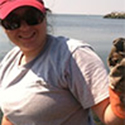
Class of '16
Undergrad Degree: Biology major with a concentration in marine biology. Minor in environmental studies
Hometown: Eastchester, New York
Extracurricular Activities: Resident Assistant in the Service for Justice Residential College; Member of NRHH, Front Desk and Equipment Assistant at the RecPlex
Awards and Scholarships: Bellarmine Merit Scholarship
Why did you choose to study your major at Fairfield University?
How have you been inspired in pursuit of your academic interests?
After completing the general biology classes and being exposed to various topics I found I had a strong interest in marine biology. I sought out the academic advisor for the marine biology concentration Dr. Diane Brousseau and she guided me in terms of courses and other extracurricular activities. She introduced me to the BASE Camp program where I became an assistant counselor. All of these experiences have helped affirm my decision to pursue a career in marine science.
After living in the Service for Justice Residential College my sophomore year I learned about various walks of life and the impact the environment has on those lives. This inspired me to pursue a minor in Environmental studies.
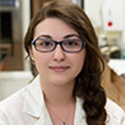
Class of '15
Undergrad: Biology, concentration in molecular biology
Current hometown: Meriden, Connecticut
Awards and Scholarships: Science Institute Grant for summer research
Why Biology?
Describe a favorite course and how it helped your academic growth?
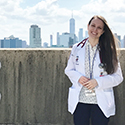
Class of '14
Undergrad: Biology/Pre-Med, Minors in Italian and French
Current hometown: Glen Ridge, NJ
Extracurricular Activities: Operation Smile, French Club, Alpha Mu Gamma, and National Society of Collegiate Scholars
How/why did you select your major/minor?
Describe a project completed through the program that you are particularly proud of.
What attributes regarding the faculty did you find particularly helpful/encouraging?
I can only say positive things about the faculty at Fairfield. Having been a biology major, a foreign language minor, and a student in the Honors Program, I was exposed to many different academic departments in the College of Arts and Sciences. Whether it was Dr. Miecznikowski spending time outside of office hours to answer our inorganic chemistry questions, or Dr. Orlando having an end-of-semester dress-up party, where we dressed as our favorite characters from the books we had read in her Victorian City honors course, every professor I had went above and beyond to make sure that we not only understood what we were learning, but that we enjoyed it as well.
Describe the ways that the University’s Jesuit mission and identity had a positive influence in your academic and personal experience.
Fairfield’s Jesuit mission and identity influenced my academic and personal experience not only as an undergraduate, but even today as a medical student. The Jesuit idea of cura personalis, or care of the whole person, is so important in the field of medicine. As I tell the patients I see every day, it is vital to take care of the mind, body, and spirit in order to lead healthy and fulfilling lives. The Jesuit motto of men and women for others has also greatly influenced my experience in the medical field. Every day, I am encouraged to learn more and further my education so that I am better prepared to help patients. The more information I learn, the more knowledge I can use to help others.
.
Of course, many students majoring in biology follow the pre-med concentration and have become surgeons, family physicians, psychiatrists, dentists, and veterinarians. In addition to medicine and advanced study, career paths chosen by graduates of recent years include allied health fields:
Several have gone to law school with the aim of specializing in forensics or environmental law. Others have found positions in government agencies where knowledge of biology is a qualification and some have taken business positions in hospital administration or with pharmaceutical companies. Those entering graduate schools have specialized in at least 20 different fields of modern biology.
Learn more about how Fairfield's Career Planning Center can support your post-graduate goals, and how Fairfield's tight-knit alumni network can build career and mentoring opportunities that last a lifetime.
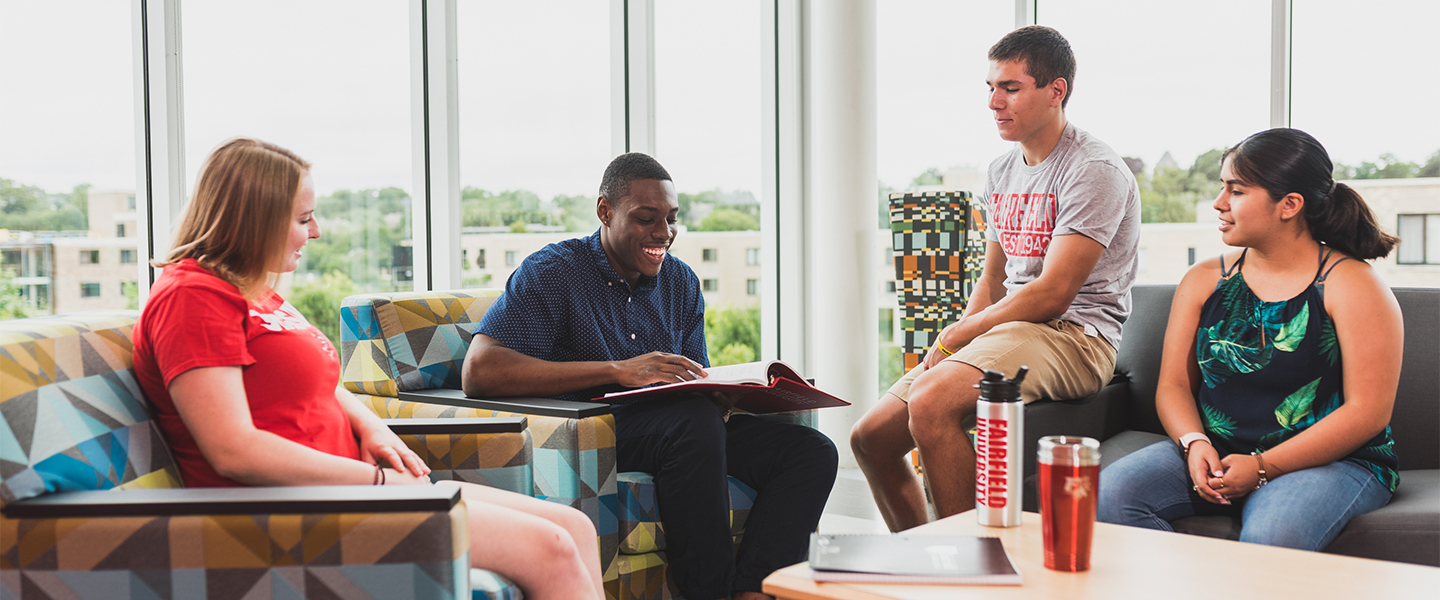
As a Jesuit, Catholic university, Fairfield is dedicated to diversity and inclusion; to radical hospitality in service of racial, social, and economic justice.
Internships provide the opportunity for practical experience in a career field related to your major. Most departments offer credit for internships in appropriate agencies and business firms. This experience is optional in the senior year for qualified students and may be undertaken for a maximum of 6 academic credits for a year-long program. Research and internship experiences are extra courses and do not count towards the biology major degree requirements.
The purpose of the internship program is to provide you with the opportunity of earning experience in the public or private sector which has relevance to your academic major. It is expected that the internship will be mutually beneficial to both you and the organization in which you are involved. As a cooperative effort, the internship experience should allow you an opportunity for the practical application of the principles and theories you are learning in your major field of study.
Your progress will be monitored by both an on-the-job supervisor and a faculty member. If you're interested in an internship, you should discuss arrangements as early as possible with a member of the faculty.
To be eligible for an internship, you must:
Internships for biology majors have been established at:
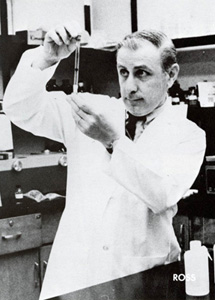
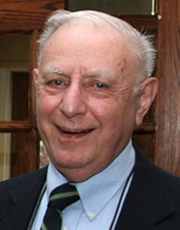
In 2011, the College of Arts and Sciences established the Dr. Donald J. Ross Sr. Biology Lecture Series to honor the memory of beloved Professor Emeritus Donald Ross Sr., PhD, who passed away in August 2008 and was one of the founding members of the Fairfield University Biology Department. Teaching was Dr. Ross’ first priority, whether it was in the classroom or laboratory. Hundreds of his students over his 58-year teaching career went on to earn MDs and advanced degrees in biology or related fields. Today, more than a decade later, the series continues with virtual and hybrid events dedicated to preserving Dr. Ross’ legacy of educating and engaging students in scientific inquiry.
All lectures in the series this fall will be hosted on the last Wednesday of each month at noon and will feature lectures by biology faculty members, alumni, and guests who have gone on to achieve tremendous success in their field. From explorations in the field of biology and predator-prey interactions to research of c. elegans, the seven-part series will cover a wide range of medical and scientific topics.
For lecture series event links and details, visit Life@Fairfield.
The 2023 Dr. Donald J. Ross Sr. Biology Lecture Series
All lectures will be held in-person on the following Wednesdays at Noon. Please visit Life@Fairfield for locations. Refreshments will be provided.
sep
27
2023
Finch in a pinch: Effect of human activity on Darwin’s finches in the Galápagos Islands
Sarah Knutie, PhD, Associate Professor, Department of Ecology and Evolutionary Biology, Institute for Systems Genomics, University of Connecticut
oct
25
2023
Development and application of genome editing technology for cell-based therapeutics in oncology and beyond: From writing papers at Fairfield to writing genomes in biotech
Mike Certo ’04, PhD, Vice President, Research and Technology Development, 2Seventy Bio
nov
29
2023
Prey processing in sharks, rays and basal vertebrates, new insights on the origin of chewing
Jason Ramsay, PhD, Associate Professor, Biology Department, Westfield State University
jan
24
2024
Investigating how niche shape coordinates stem cell behavior
Gabriela Vida ’18, PhD Candidate, Cell and Molecular Biology, University of Pennsylvania
feb
21
2024
Investigating how urban landscapes alter freshwater environments
Matt Schuler, PhD, Assistant Professor, Department of Biology, Montclair State University
mar
20
2024
It’s the little things that count: Unraveling the link between microbial ecology and the future fate of soil carbon
Zac Freedman ’05, PhD, Assistant Professor and O.N. Allen Professor of Soil Microbiology, Department of Soil Science, UW-Madison
apr
17
2024
Natural products as anti-cancer agents? Investigating the effect and mechanism of plant compounds on human breast cancer cells
Shelley Phelan, PhD, Professor, Biology Department, Fairfield University
The College of Arts and Sciences at Fairfield University is home to a vibrant community of engaged faculty, dedicated staff, industry professionals, and accomplished scholars devoted to the process of innovation and excited by the prospect of producing knowledge in the service of others. Meet the members of our Biology Department.